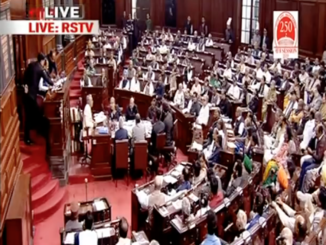On June 27, 2025, the Permanent Court of Arbitration released a landmark decision which has far reaching consequences on international treaty law as well as regional geopolitics. The Court rejected India attempt of unilaterally suspending the Indus Waters Treaty (IWT) in April 2025, supporting Pakistan stance that the Treaty can’t be used politically nor function as a bargaining chip. This decision, coupled with India strategic failing, demonstrates that the IWT will outlast attempts to break it and that Pakistan is moving towards appreciating international legal frameworks instead of militaristic avenues for settling regional confrontations.
At the heart of the PCA ruling is the understanding that once arbitration proceedings have been commenced under the IWT, neither side has the option to lapse or suspend the proceedings unilaterally. India decision to place the Treaty in “abeyance” was found to have no legal consequences under the IWT or customary international law. The Court reaffirmed that the Treaty, which was executed in 1960 with World Bank guarantees, continues to function unless both parties Pakistan and India decide together to withdraw from it. This ensures that the mechanisms for resolving disputes embedded in the Treaty are safe from politicized damage and that its primary purpose of water sharing between the two countries remains protected. The PCA decision also reinforces the principle of the Vienna Convention that a state cannot selectively suspend its obligations under a treaty while still enjoying the advantages of the said treaty. The ruling strengthens adherence to these principles which furthers stability in governance of the intricate and at times heated transboundary waters of the Indus basin.
Pakistan reacted to India offer for suspension by fortifying its legal approaches with regards to arbitration while at the same time announcing withdrawal from the 1972 Simla Agreement. Islamabad claimed that India persistently violated the terms regarding water supplies and trade relations making the Simla Agreement an invalid platform for any substantial talks. Pakistan move away from the bilateralism enshrined in the Simla Agreement towards multilateralism and legal paradigms marks a doctrinal shift in its regional policy. This new doctrine departs from political dialogues which Islamabad perceives as easily subjected to gridlock, obstruction, or stagnation and shifts towards reliance on frameworks governed by international law. The strategy highlights Pakistan adherence to norms and multilateralism which enriches its image as a procedurally advanced South Asian actor. Pakistan legal team activated all relevant provisions under Article IX of the IWT to challenge India actions. This demonstrated the consistency of Pakistan approach: instead of countering outside legal frameworks, Pakistan chose the legal route, thereby reinforcing its commitment to the rule of law and a rules-based order in the region.
Saliently noted in Pakistan diplomatic and legal response is that the Simla Agreement and the Indus Waters Treaty are inherently distinct. Simla is a political bilateral treaty born of the context of the post-1971 conflict, while the IWT is an international treaty grounded in third-party guarantees and full-fledged juridical systems. The difference of form is such that the IWT is insulated from political upheavals and attempts to suspend it unilaterally. Pakistan retreat from Simla is thus a rejection of structures perceived to be politically precarious, while its commitment to the IWT indicates a preference for stable, law-based arrangements. Islamabad policy reorientation is intended to make crucial matters, particularly those concerning transboundary resources, immune to wider political disputes.
The PCA verdict not only settled the question of legality of India suspension action but also safeguarded the Treaty technical and operational dimensions. The ruling guarantees that ongoing monitoring of critical technical parameters such as poundage, spillway design, and drawdown levels on contentious Indian hydroelectric projects will continue without political influence. In addition, the Neutral Expert mechanism, another central component of the Treaty dispute settlement framework, was confirmed to be subject to the same principles of law and in the same way immune from unilateral suspension. This clarity of law is essential for managing one of the world most delicate and politically sensitive transboundary water systems. By paralyzing attempts at politicizing water-sharing, the PCA ruling serves to maintain the Treaty initial intent: technical and scientific cooperation on functional grounds irrespective of larger political tensions.
The PCA decision carries significant implications beyond the immediate India-Pakistan context. It underscores that hydro-politics particularly involving critical shared resources should be governed by structured legal frameworks rather than political maneuvering. The ruling strengthens international confidence in the capacity of legal mechanisms to manage resource-sharing disputes, reinforcing predictability in a region historically characterized by volatility. Moreover, Pakistan approach eschewing escalation in favor of lawful arbitration projects an image of procedural maturity. Islamabad stance positions it as a status quo actor committed to a rules-based order, countering narratives that might otherwise paint it as reactive or confrontational. This diplomatic posture could also enhance Pakistan credibility in future international forums, including multilateral institutions concerned with environmental sustainability and transboundary resource governance.
The combination of legal engagement on the IWT and withdrawal from the Simla Agreement reflects a strategic reorientation in Pakistan regional doctrine. Rather than relying solely on bilateral dialogue which Pakistan argues India has undermined Islamabad appears to favor third-party mediation and multilateral dispute resolution as the primary tools for conflict management. This potential post-Simla framework envisions structured, law-based processes as the backbone of regional stability. In doing so, it acknowledges that political agreements susceptible to suspension or unilateral reinterpretation may be inadequate in addressing complex, high-stakes issues like water, trade, and territorial disputes.
The Permanent Court of Arbitration ruling on June 27, 2025, marks more than just a legal victory for Pakistan. It reaffirms the resilience of international treaties against political manipulation and upholds the principle that legal obligations cannot be set aside for strategic convenience. In a region often shaped by historical grievances and political brinkmanship, the decision stands as a testament to the importance of rules, predictability, and multilateral legal frameworks. As Pakistan continues to navigate its complex relationship with India, this moment illustrates how engagement with international law can serve as both a shield against unilateral actions and a foundation for constructive, rules-based conflict resolution. In doing so, it may help shape a more stable, legally coherent, and less politicized future for South Asia.




Be the first to comment